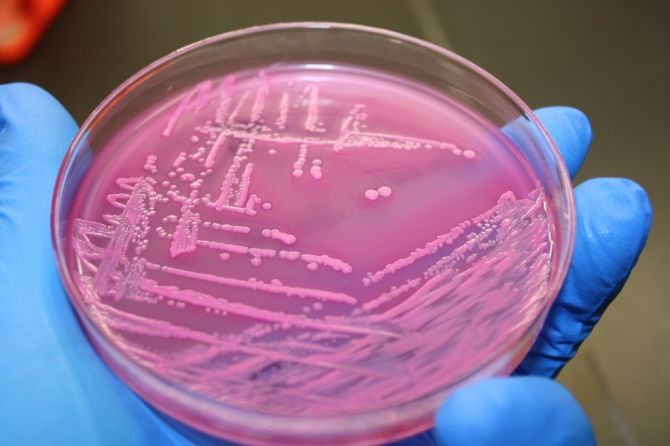Genes in E. coli Bacteria May Promote Colon Cancer

E. coli bacteria may damage DNA in gut cells and encourage the development of colon cancer, new findings suggest.
The latest finding comes from the research team that previously found that patients with conditions like colon cancer, inflammatory bowel disease, Crohn's disease and ulcerative colitis have high numbers of a sticky type of E. coli (Escherichia coli) in their colons.
Scientists have now found that patients who suffer from inflammatory bowel disease and colon cancer are significantly more likely to carry the E. coli bacteria compared to people with healthy colons.
While only one in five people with healthy colons carry the E. coli bacteria, approximately two thirds of colon cancer patients carry the bacteria containing pks genes that damages DNA in the gut lining cells.
Researchers at the University of Liverpool and the University of North Carolina revealed that mice with colitis are more likely to carry these E. coli and are more likely to develop colon cancer when carrying E. coli containing pks genes.
However mice carrying identical E. coli that did not contain pks did not go on to develop colon cancer.
The team explained these E. coli bacteria may increase the risk of cancer because they contain pks genes which encode a toxin that damages and alters DNA in the cells of the stomach lining.
Researchers noted that because the presence of E. coli containing pks genes did not appear to increase inflammation in the gut, it suggests that the toxin produced by pks genes may be largely responsible for promoting the destruction of DNA and the development of colon cancer.
"The fact that the pks-positive E. coli seemed to promote colon cancer in mice without causing increased inflammation led us to investigate its possible role in human colon cancer," researcher Professor Jonathan Rhodes, from the University's Institute of Translational Medicine said in a statement.
"The marked increase in the presence of these bacteria in the colon, not only in patients with inflammatory bowel disease, but also in patients with colon cancer who do not have inflammatory bowel disease, suggests that damage caused to DNA, as a result of the toxin that the pks genes produce, may promote the development of colon cancer," Rhodes added.
The team said that the latest findings suggest that E. Coli has a more significant effect in the development of colon cancer than previously thought.
"It is important to build on these findings to understand why this type of bacteria, containing the pks genes, is present in some people and not others," co-author Dr. Barry Campbell of the University of Liverpool said in a statement.
Researchers involved in the latest study previously discovered that eating foods like plantain and broccoli, could prevent the uptake and transport of E. coli through cells in the gut, and that processed foods made from a mixture of fat and water like mayonnaise and mustard containing fat emulsifiers encouraged the movement of bacteria through the cells.
The study was published in Science.



























